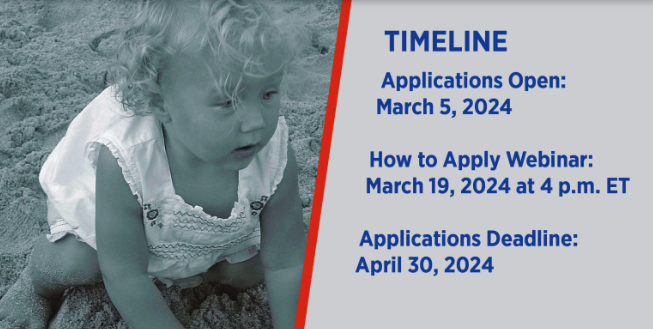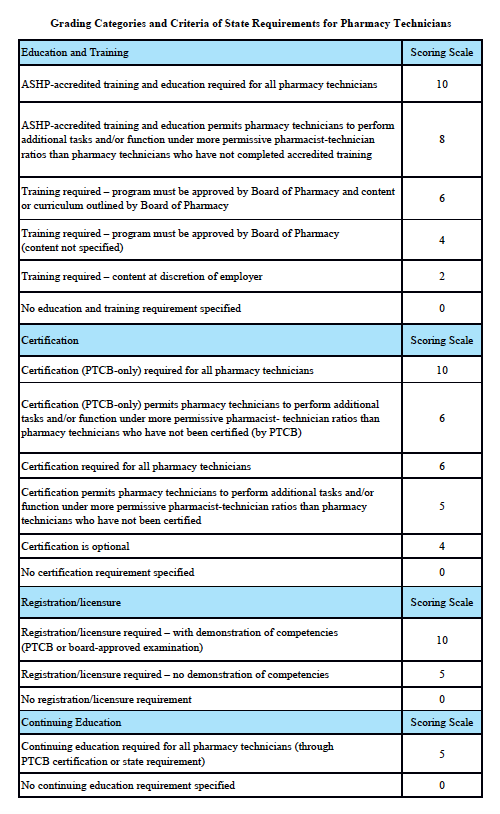
Second Academic Year for Medication Safety Scholars Program
March 22, 2024
Really excited to share the news that we will be beginning the second academic year for the Emily Jerry Foundation‘s Medication Safety Scholars Program! This comprehensive distance education and virtual engagement program was developed and successfully implemented over the… Read More



Washington Scorecard
Grading Scale:
A – 85-100%, B – 70-84.9%, C – 55-69.9%, D – 40-54.9%, F – 0-39.9%
Grading Categories & Criteria

Washington Law
I. Laws
Revised Code of Washington
http://apps.leg.wa.gov/rcw/default.aspx?cite=18.64A&full=true
Chapter 18.64A RCW
Pharmacy assistants
18.64A.010 Definitions.
(6) “Pharmacy technician” means:
(a) A person who is enrolled in, or who has satisfactorily completed, a board approved training program designed to prepare persons to perform nondiscretionary functions associated with the practice of pharmacy; or
(b) A person who is a graduate with a degree in pharmacy or medicine of a foreign school, university, or college recognized by the board;
18.64A.020
Rules — Qualifications and training programs.
(1)(a) The board shall adopt, in accordance with chapter 34.05 RCW, rules fixing the classification and qualifications and the educational and training requirements for persons who may be employed as pharmacy technicians or who may be enrolled in any pharmacy technician training program. Such rules shall provide that:
(i) Licensed pharmacists shall supervise the training of pharmacy technicians;
(ii) Training programs shall assure the competence of pharmacy technicians to aid and assist pharmacy operations. Training programs shall consist of instruction and/or practical training; and
(iii) Pharmacy technicians shall complete continuing education requirements established in rule by the board. (b) Such rules may include successful completion of examinations for applicants for pharmacy technician certificates. If such examination rules are adopted, the board shall prepare or determine the nature of, and supervise the grading of the examinations. The board may approve an examination prepared or administered by a private testing agency or association of licensing authorities.
(2) The board may disapprove or revoke approval of any training program for failure to conform to board rules. In the case of the disapproval or revocation of approval of a training program by the board, a hearing shall be conducted in accordance with RCW 18.64.160, and appeal may be taken in accordance with the administrative procedure act, chapter 34.05 RCW.
18.64A.060
Pharmacy’s application for ancillary personnel — Fee — Approval or rejection by board — Hearing — Appeal.
No pharmacy licensed in this state shall utilize the services of pharmacy ancillary personnel without approval of the board.
Any pharmacy licensed in this state may apply to the board for permission to use the services of pharmacy ancillary personnel. The application shall be accompanied by a fee and shall comply with administrative procedures and administrative requirements set pursuant to RCW 43.70.250 and 43.70.280, shall detail the manner and extent to which the pharmacy ancillary personnel would be used and supervised, and shall provide other information in such form as the secretary may require.
The board may approve or reject such applications. In addition, the board may modify the proposed utilization of pharmacy ancillary personnel and approve the application as modified. Whenever it appears to the board that pharmacy ancillary personnel are being utilized in a manner inconsistent with the approval granted, the board may withdraw such approval. In the event a hearing is requested upon the rejection of an application, or upon the withdrawal of approval, a hearing shall be conducted in accordance with chapter 18.64 RCW, as now or hereafter amended, and appeal may be taken in accordance with the Administrative Procedure Act, chapter 34.05 RCW.
18.64A.070
Persons presently acting as technicians — Pharmacies presently employing those persons.
(1) Persons presently assisting a pharmacist by performing the functions of a pharmacy technician may continue to do so under the supervision of a licensed pharmacist: PROVIDED, That within eighteen months after May 28, 1977, such persons shall be in compliance with the provisions of this chapter.
(2) Pharmacies presently employing persons to perform the functions of a pharmacy technician may continue to do so while obtaining board approval for the use of certified pharmacy technicians: PROVIDED, That within eighteen months after May 28, 1977, such pharmacies shall be in compliance with the provisions of this chapter.
Washington Administrative Code
http://apps.leg.wa.gov/wac/default.aspx?cite=246-901
Chapter 246-901 WAC
Pharmacy ancillary personnel
(5) “Pharmacy technician specialized function” means certain tasks normally reserved to a pharmacist according to WAC 246-863-095 that may be performed by a pharmacy technician who has met board requirements. 246-901-020 Pharmacy ancillary personnel utilization.
(1) Pharmacy technicians may perform certain nondiscretionary and specialized functions consistent with their training in pharmacy practice while under the immediate supervision of a licensed pharmacist.
(2) The discretionary tasks reserved to a pharmacist are listed in WAC 246-863-095.
(3) Unless authorized as a specialized function according to WAC 246-901-035, the pharmacy technician shall assist a pharmacist in the performance of all tasks except those reserved to a pharmacist in subsection (2) of this section.
(4) Entry of a new medication order into the pharmacy computer system and retrieval of the drug product to fill a prescription are tasks reserved to the pharmacist and pharmacy technician.
(5) The pharmacy assistant may assist a pharmacist in performance of all tasks except those reserved to the pharmacist and pharmacy technician.
(6) Pharmacy ancillary personnel may record or provide medication data when no interpretation is required.
246-901-030
Technician education and training.
(1) Applicants must obtain education and training from one of the following:
(a) Formal academic pharmacy technician training program approved by the board.
(b) On-the-job pharmacy technician training program approved by the board.
(2) The minimum educational prerequisite for entering a training program shall be high school graduation or G.E.D.
(3) Applicants must pass a board-approved national standardized pharmacy technician certification examination.
(4) An out-of-state pharmacy technician applicant must meet the same requirements as a pharmacy technician trained in this state. The board must approve training programs approved in other states.
(5) Applicants whose academic training has been obtained in foreign countries shall meet certification requirements as listed below:
(a) Foreign pharmacy school graduates. Board approval of program completed for the degree.
(b) Foreign medical school graduates. Board approval of program completed for the degree.
(c) All foreign graduates for whom English is not the primary language shall provide proof of receiving a score of at least 173 on the Test of English as a Foreign Language (TOEFL) and a score of 50 on the Test of Spoken English (TSE) prior to certification.
(d) Foreign trained applicants must earn 520 hours of supervised experience in an approved pharmacy technician training program. (
6) Prior to performing specialized functions, pharmacy technicians shall complete specialized training and meet proficiency criteria set forth by the board.
(a) Unit-dose medication checking. The training proficiency criteria requires demonstration of 99% accuracy in medication checking.
(b) Intravenous admixture preparation. The training proficiency criteria requires demonstration of 100% accuracy in intravenous admixture preparation of a representative sample of preparations provided by the facility using aseptic technique.
246-901-050
Technician program approval.
(1) Program standards. The board will establish standards for judging pharmacy technician training programs.
(2) Approval. In order for a program for training pharmacy technicians to be considered for approval by the board, the director of the program, who shall be a pharmacist, shall submit to the board a description of the course of training offered, including subjects taught, method of teaching, and practical experience provided. The director of the program shall also advise the board concerning the skills and knowledge which are obtained in the course, and the method by which the proficiency of the pharmacy technician in those skills and knowledge is tested or ascertained. The board may require such additional information from program sponsors.
(3) Program change. The director shall request board approval before implementing any significant program change.
(4) Reapproval. The director shall submit each approved program to the board for reapproval every five years.
(5) Registry. The board will maintain a registry of approved programs. Interested persons may request a copy of the registry by contacting the board.
246-901-060
Technician certification.
To become certified as a pharmacy technician, an individual must apply to the board for certification. The application must include:
(1) A statement signed by the program director verifying the applicant has successfully completed the board-approved pharmacy technician training program. (
2) Proof of passing a board-approved national standardized pharmacy technician certification examination.
It is the responsibility of the pharmacy technician to maintain a current mailing address with the board as required by chapter 246-12 WAC. Pharmacy technicians shall notify the board of any change of mailing address within thirty days of the change.
246-901-130
Pharmacist to pharmacy technician ratio.
(1) A standard ratio of one pharmacist to a maximum of three technicians is established for each licensed pharmacy.
(2) The pharmacist must be actively practicing pharmacy.
(3) In determining which pharmacists may be included in the calculation of the ratio, the board will consider approval of pharmacy technician utilization plans which include all pharmacists within the pharmacy who are engaged in the actual practice of pharmacy. When the pharmacy provides service to inpatients of a hospital or extended care facility, pharmacists who are practicing pharmacy outside of the confines of the licensed pharmacy (for example, performing nursing unit inspections, reviewing charts, consulting with health professional staff) may be included in the ratio, if:
(a) There are sufficient numbers of pharmacists within the pharmacy to properly supervise the work of the pharmacy technicians;
(b) The pharmacy is not open to the public;
(c) The medications are being checked by another health professional before being given to the patient;
(d) Drug orders are not dispensed from the pharmacy without being checked by a licensed pharmacist or pharmacy intern except for board-approved pharmacy technician specialized functions provided a pharmacy technician may check unit-dose medication cassettes.
The data contained in this 2012 Annual Scorecard are accurate as of December 2012 . Because statutes and regulations are continually revised, the data are subject to change. These data have been verified with the state board of pharmacy. This scorecard is updated on an annual basis in order to incorporate statutory and regulatory changes. A new scorecard will be issued in July 2013.
Scoring rationale for Education and Training:
In order to protect the public and help ensure patient safety, it is important that pharmacy technicians are properly educated and trained. The most rigorous training is accredited training. The sole entity empowered to accredit pharmacy-technician training programs is the American Society of Health-System Pharmacists (ASHP). Please note that this is “programmatic accreditation” – not “institutional accreditation.” It is the content of the training program – as measured against established standards – that is being evaluated and accredited. Accredited training is vital to protecting patient safety because it means that a pharmacy-technician training program has met established quality standards to provide assurance and confidence to the public. For more information, please see http://www.ashp.org/menu/Accreditation/TechnicianAccreditation.aspx.
Scoring rationale for Certification:
Certification is the process by which a nongovernmental agency or association grants recognition to an individual who has met certain predetermined qualifications specified by that agency or association. This is often determined by an examination process. Numerous organizations have recommended that the certification exam conducted by the Pharmacy Technician Certification Board (PTCB) should be recognized as the sole, nationally-accredited certification exam for pharmacy technician certification – including the National Association of Boards of Pharmacy (NABP), the Texas State Board of Pharmacy (TSBP), and the U.S. Department of Veterans Affairs (VA). In a recent report, NABP recommended that states be encouraged to “recognize certification by the Pharmacy Technician Certification Board (PTCB).” Moreover, NABP performed a psychometric audit of the PTCB’s pharmacy technician certification examination (PTCE) in 2001 and determined that the PTCE is psychometrically sound, defensible, and valid. In May 2010, the TSBP awarded the PTCB with the Pharmacy Technician Certification Provider contract in Texas. PTCB was selected for the contract after a rigorous bidding and evaluation process that included formal reviews and evaluations from three independent psychometricians. TSBP confidently recognizes PTCB as the single provider of certification examinations for pharmacy technicians. In addition, in June 2010, the VA began requiring PTCB certification for VA pharmacy technicians employed at grade GS-6 and above.
Scoring rationale for Registration/Licensure:
Registration/licensure is the process by which the state maintains a list of all pharmacy technicians in the state and grants permission for an individual to work as a pharmacy technician in the state based on the applicant’s completion of all pre-requisites to registration/licensure – such as required training and certification.
Scoring rationale for Continuing Education:
Continuing education enables pharmacy technicians to fulfill their professional responsibility to maintain competence and up-to-date knowledge and skills in an environment of technological advances and increasingly complex, new medications and therapies.
Our Mission
The Emily Jerry Foundation is determined to help make our nation’s, world renowned, medical facilities safer for everyone, beginning with our babies and children. We are accomplishing this very important objective by focusing on increasing public awareness of key patient safety related issues and identifying technology and best practices that are proven to minimize the “human error” component of medicine. Through our ongoing efforts The Emily Jerry Foundation is working hard to save lives every day.
Recent Posts
Archives